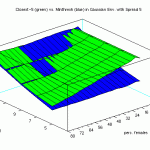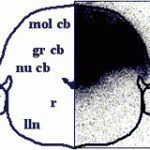The long-term objective of this research program is to identify the interactions among chemical messengers that control behaviors. Neuropeptides regulate social behaviors in representative species from all vertebrate classes. Species differences in behavior, however, have made development of clear mechanistic models difficult. The current laboratory projects address the complexity of behavioral mechanisms using a combination of laboratory and field experiments and computational models.
Laboratory studies focus on the mechanisms of action of neuropeptides, neurotransmitters and neuroactive steroids. Results of these projects provide better understanding of the cellular and molecular basis of important behaviors. Field studies address important emerging questions on neuropeptide modulation of affiliative and aggressive behaviors. Synthetic experiments with agent-based computational models allow exploration of conditions impractical or impossible in empirical tests. The models are expected to propose new mechanisms for neurochemical control of behavior. These projects thus implement a tight experiment-model-experiment loop and focus on the development of a new paradigm for a systems biology approach to understanding social behavior.
Read two recent book chapters that summarize parts of our research:
Boyd, S.K. (2012) Vasotocin modulation of social behaviors in amphibians. Chapter 7 in: Oxytocin,
Vasopressin and Related Peptides in the Regulation of Behavior, edited by E. Choleris, D. Pfaff and
M. Kavaliers, Cambridge University Press.
Boyd, S.K. (2012) Amphibian neurohypophysial peptides. Chapter 49 in: The Handbook of
Biologically Active Peptides, edited by A. Kastin, Elsevier. (First edition, 2006; Second edition forthcoming in 2012.)




